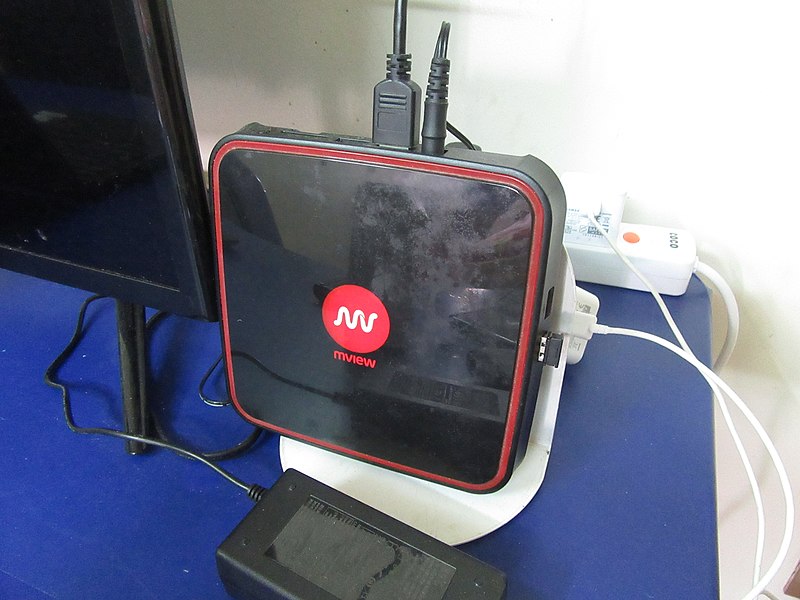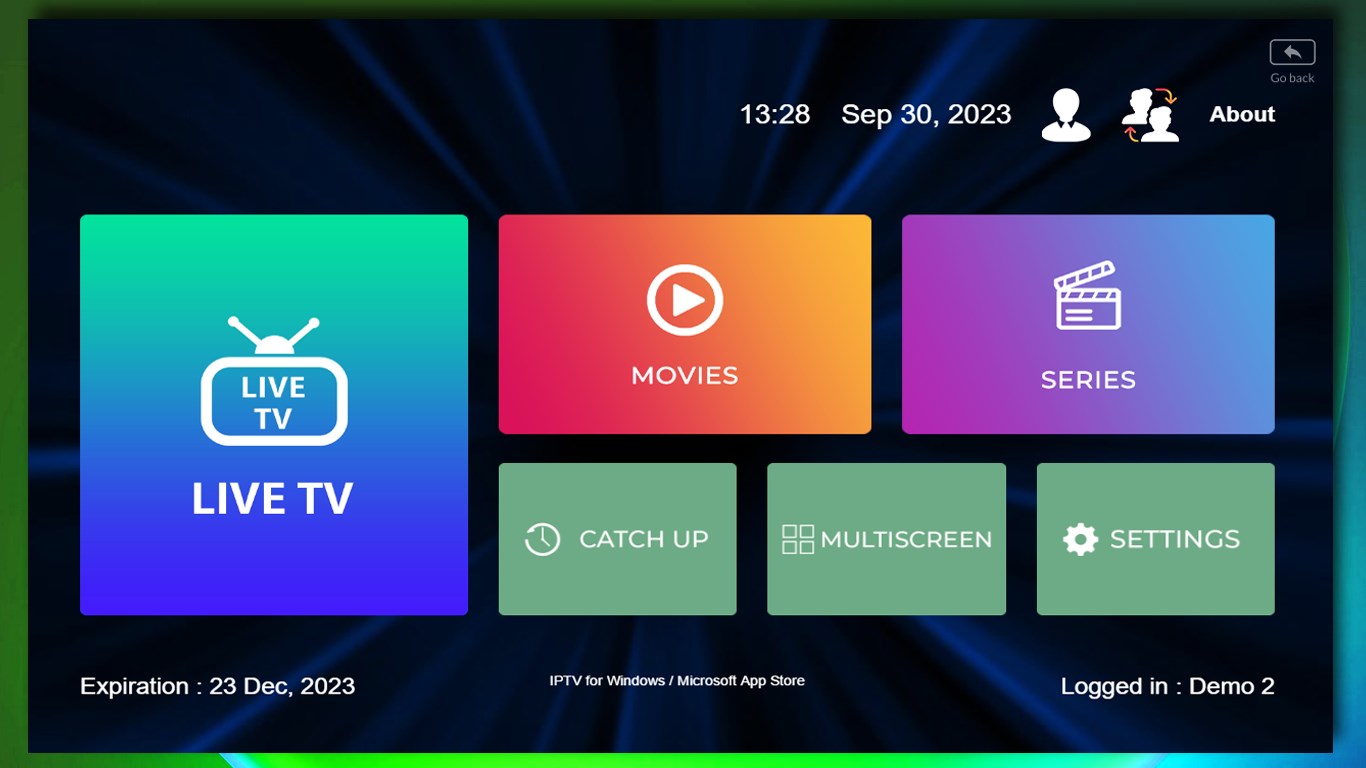IPTV Explained: Why It's Revolutionizing the Method We View TV
The emergence of Net Protocol Tv (IPTV) represents a critical change in exactly how audiences involve with content. As we check out the intricacies of IPTV, it comes to be evident that this advancement is not simply a trend; it positions substantial implications for the future of tv intake and the landscape of electronic enjoyment.
What Is IPTV?
IPTV, or Net Protocol Tv, is a method of providing tv content online instead than with traditional satellite or cord layouts. This innovative strategy makes use of internet method networks to transmit video information, enabling audiences to access a vast array of programming straight by means of their net connection. Unlike conventional broadcasting, which relies upon radio waves or cable television infrastructure, IPTV allows the streaming of content in an extra user-centric and flexible manner.
One of the essential advantages of IPTV is its ability to give on-demand access to a huge collection of shows, flicks, and live programs. Clients can enjoy customized watching experiences, consisting of the alternative to stop, rewind, or document content. Additionally, IPTV services often incorporate interactive attributes, such as video as needed, catch-up tv, and the ability to access multiple devices at the same time.

Exactly How IPTV Functions

The process starts with material gathering, where numerous television networks and programs are compiled onto a centralized server. From this web server, the web content is encoded into electronic layouts suitable for streaming. When an individual chooses a program, the IPTV solution recovers the appropriate data packets from the web server and transfers them to the customer's device.
IPTV often includes interactive attributes such as access, pause, and rewind to a digital collection, boosting user involvement. On the whole, IPTV represents an advanced integration of modern technology that changes conventional television watching right into an extra individualized and vibrant experience.
Benefits of IPTV
As viewers significantly look for versatility and personalization in their enjoyment selections, IPTV supplies a range of advantages that accommodate these demands. One of the most substantial benefits is the capacity to access content on various tools, consisting of mobile phones, tablets, clever Televisions, and computers - Iptv. This multi-device compatibility permits users to enjoy their favorite programs and motion pictures anytime, anywhere, improving their viewing experience
Moreover, IPTV provides a comprehensive library of on-demand content, making it possible for customers to choose what to see, when to watch it, and exactly how to view it. This contrasts with traditional broadcasting approaches, where visitors are usually constricted by taken care of schedules. In addition, IPTV services often use personalization attributes, such as customized suggestions based on checking out habits, enabling users to find brand-new More hints material suited to their preferences.
Additionally, IPTV generally consists of innovative features like cloud DVR capacities, enabling individuals to videotape and keep programs for later watching. Enhanced interactivity, such as the capacity to pause, rewind, or fast-forward web content, additional improves the seeing experience. Iptv. Jointly, these advantages position IPTV as an engaging choice to standard television, fulfilling the advancing expectations of today's target markets
Comparison With Standard Television
Traditional television and IPTV existing distinct seeing experiences, each accommodating different target market choices. Traditional TV counts on cable, terrestrial, or satellite signals, using a fixed routine for broadcasting. Visitors are frequently bound to certain time ports to watch their favorite shows, which can be inconvenient in today's hectic setting.
On the other hand, IPTV delivers web content via the web, permitting individuals to stream programs and motion pictures on-demand. This adaptability enables audiences to view content at their convenience, eliminating the constraints of an established schedule. Additionally, IPTV services frequently offer accessibility to a wider range of channels and web content, consisting of worldwide programming and niche categories that conventional cable television packages may not offer.
Furthermore, the interactivity of IPTV improves individual engagement, enabling attributes such as time out, rewind, and record capabilities that standard TV lacks. Customers can additionally access supplementary web content, including detailed program guides and audience ratings, improving the total watching experience.
Eventually, while traditional television continues to be a staple for numerous customers, IPTV's adaptability and wealth of web content make it an increasingly prominent alternative, appealing to those looking for more control over their watching routines.
Future of IPTV
The future of IPTV appears encouraging, driven by improvements in technology and changing consumer preferences. As broadband infrastructure remains to improve internationally, IPTV services are poised to supply higher-quality video content with very little buffering and improved customer experiences. This progression is enhanced by the proliferation of wise gadgets, making it possible for viewers to gain access to IPTV web content on smartphones, tablets, and clever Televisions, hence enhancing comfort and flexibility.
Additionally, the assimilation of expert system and artificial intelligence right into IPTV systems is anticipated to transform content delivery. Customized suggestions based upon watching behaviors will boost user engagement, making it simpler for subscribers to discover appropriate material. Furthermore, the consolidation of enhanced reality (AR) and online fact (VR) innovations holds the prospective to develop immersive checking out experiences that standard tv can not match.
The increase of subscription-based versions and ad-supported streaming solutions indicates a shift in how consumers are ready to More Bonuses spend for web content, additionally fueling IPTV's growth. As more consumers look for adaptability and modification in their watching routines, IPTV is most likely to end up being a leading pressure in the enjoyment landscape, improving exactly how content is produced, dispersed, and eaten in the coming years.
Final Thought
In verdict, IPTV stands for a transformative innovation in tv usage, Your Domain Name offering customers unprecedented flexibility and control over their viewing experiences. As modern technology continues to evolve, the capacity for IPTV to further influence media usage patterns and improve the home entertainment landscape remains significant.
The appearance of Net Procedure Television (IPTV) signifies a crucial change in just how audiences engage with web content.IPTV, or Web Method Television, is an approach of delivering tv content over the internet rather than through standard satellite or wire layouts.Using a network of internet methods, IPTV provides television web content with a series of well-defined processes. Furthermore, IPTV solutions regularly use personalization attributes, such as tailored referrals based on checking out habits, enabling customers to discover new content matched to their preferences.
Furthermore, IPTV solutions frequently supply accessibility to a broader variety of channels and content, including international shows and niche styles that conventional wire packages might not offer.